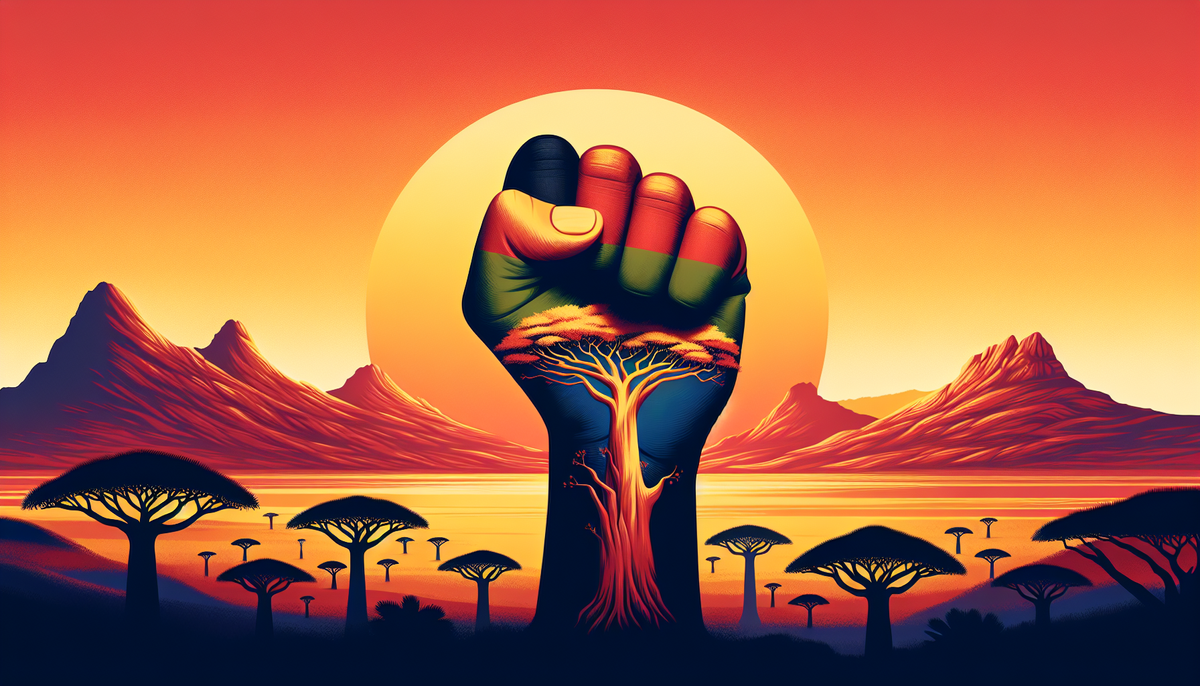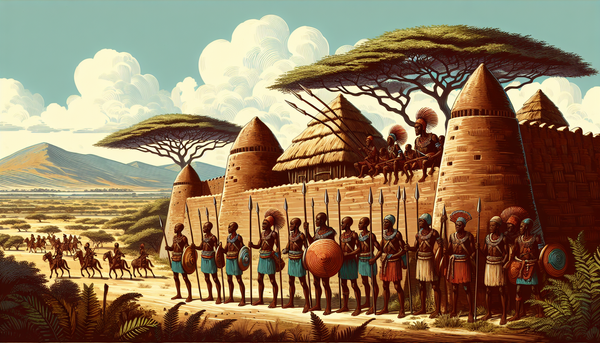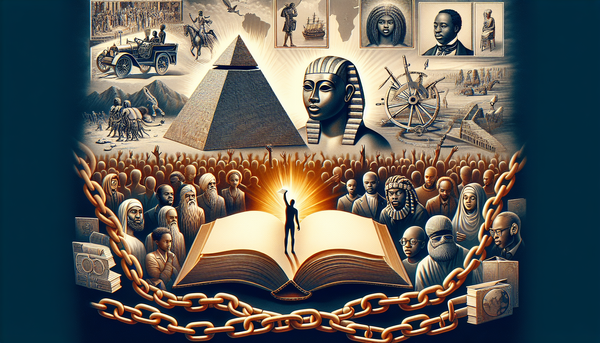Hidden Histories: Untold Stories of African Resistance

Origins of African Resistance Movements
The origins of African resistance movements can be traced back to the early interactions with European powers, as indigenous societies began confronting foreign domination. Initial resistance arose as communities sought to protect their land, autonomy, and cultural identities from colonial encroachment. These movements, often rooted in longstanding traditions of communal governance, were sparked by the imposition of foreign political structures and economic systems that undermined local authority and disrupted traditional livelihoods.
In the late 19th and early 20th centuries, the scramble for Africa intensified, leading to widespread exploitation and oppression. African leaders and communities organized themselves in various ways to challenge colonizers, employing tactics ranging from armed conflict to nonviolent protest. Notable figures emerged, such as Samori Touré in West Africa and Yaa Asantewaa in the Ashanti Empire, who galvanized resistance efforts against British forces.
Religious movements also played a pivotal role, as spiritual leaders inspired hope and unity among oppressed populations. These early instances of resistance laid the groundwork for future liberation struggles, revealing that the fight for independence was not merely a reaction to colonial rule but also a profound assertion of African identity, resilience, and the quest for self-determination.
Strategies of Subversion and Sabotage
Throughout the colonial era, African communities devised various strategies of subversion and sabotage to undermine colonial authorities and assert their agency. These tactics were often rooted in deep cultural beliefs and communal solidarity, allowing disparate groups to unite against common oppressors. One prevalent form of resistance involved economic sabotage, where individuals would engage in practices like withholding labor, destroying crops intended for export, or conducting boycotts against European goods. Such actions struck at the heart of colonial economies, making it clear that the colonizers relied heavily on African participation for their profit.
In addition to economic tactics, guerrilla warfare became a significant strategy during conflicts. Resistance fighters used their knowledge of local terrain to launch surprise attacks on colonial forces, disrupting supply lines and weakening their hold on territories. Secret networks were established for intelligence gathering, enabling communities to stay one step ahead of colonial administrators.
Cultural subversion was equally powerful; by preserving and promoting indigenous traditions, languages, and spiritual practices, Africans reinforced their identities and subverted colonial narratives of superiority. These strategies of subversion and sabotage not only revealed the ingenuity and resilience of African societies but also challenged the legitimacy of colonial rule, laying the foundation for future movements toward independence.
Women Warriors and Their Roles
Women played pivotal roles in African resistance movements, often assuming positions of leadership and engaging directly in combat. Throughout history, women have been active participants in struggles against colonial oppression, challenging traditional gender norms to emerge as formidable warriors, strategists, and leaders. In many societies, cultural beliefs celebrated female strength, enabling women to rally their communities and mobilize resistance efforts.
One prominent example is Yaa Asantewaa, the queen mother of the Ashanti Empire, who led her people in the War of the Golden Stool against British colonizers in 1900. Her impassioned call to arms inspired both women and men to defend their sovereignty, demonstrating the importance of female leadership in resistance movements. Similarly, women in the Congo resisted Belgian rule not only by supporting their male counterparts but also by engaging in military actions themselves.
Moreover, women’s contributions extended beyond the battlefield. They often acted as spies, messengers, and organizers, facilitating communication and logistics for resistance efforts. By preserving cultural practices and histories, they played a crucial role in fostering a sense of identity and unity among their communities. The indomitable spirit of these women warriors illustrates their integral role in the broader narrative of African resistance, shaping the fight for freedom and self-determination.
Forgotten Revolts: Case Studies
Throughout the history of African resistance, numerous revolts have been overshadowed or forgotten, yet they represent significant acts of defiance against colonial rule. One such revolt is the Aba Women's Riots of 1929 in Nigeria, where women protested against oppressive taxation imposed by British authorities. This uprising highlighted the crucial role women played in mobilizing communities and challenging colonial structures. Their organized demonstrations and demands for change resulted in a profound impact on colonial policy and gender dynamics in Nigeria.
Another often overlooked revolt is the Maji Maji Rebellion of 1905-1907 in present-day Tanzania, which arose in response to oppressive German colonial policies. The uprising brought together diverse ethnic groups united in their fight against exploitation and repression. Although ultimately crushed, the rebellion emphasized the struggle for dignity and self-determination, leaving an indelible mark on Tanzanian history.
Similarly, the 1947 Mau Mau Uprising in Kenya, primarily associated with men, also saw significant female participation. Women provided crucial support by gathering intelligence and facilitating communication, demonstrating that resistance was a communal effort.
These forgotten revolts, while not widely recognized, underscore the resilience, creativity, and determination of Africans who fought valiantly against colonial oppression, shaping the continent’s path toward liberation.
Impact of Colonial Policies on Resistance
Colonial policies implemented by European powers profoundly shaped resistance movements throughout Africa, influencing both the strategies employed by local populations and the scale of their responses. The primary aim of these policies was to extract resources and exert control over territories, often leading to widespread economic exploitation and social dislocation. As colonial administrators imposed taxes, land confiscations, and enforced labor practices, they unwittingly galvanized communities into action, prompting organized resistance against oppressive measures.
The harsh realities of colonial rule created a fertile ground for discontent. For example, in Southern Africa, the introduction of passes and labor laws marginalized Indigenous peoples, inciting revolts such as the 1906 Bhambatha Rebellion in Natal. In Ethiopia, the Italian invasion prompted fierce resistance led by figures like Emperor Menelik II, who managed to preserve sovereignty through strategic military tactics.
Moreover, the application of divide-and-rule tactics exacerbated ethnic tensions, compelling various groups to unite against a common enemy. Colonial policies often stripped communities of their identity and agency, serving as a catalyst for collective action. Ultimately, these oppressive measures not only fueled resistance but also laid the groundwork for future liberation movements, as Africans sought to reclaim their identities and sovereignty in the face of foreign domination.
Cultural Preservation and Resistance
Cultural preservation emerged as a vital aspect of resistance against colonial rule across Africa, as communities sought to maintain their identities and traditions in the face of external oppression. Colonial powers often aimed to suppress indigenous cultures, imposing foreign languages, religions, and societal norms to facilitate control. In response, African societies employed various strategies to safeguard their cultural heritage, viewing these efforts as acts of defiance.
Oral traditions, storytelling, and music played crucial roles in preserving history and fostering communal solidarity. Elders and cultural custodians became instrumental in transmitting knowledge, ensuring that younger generations retained a sense of identity and pride. Rituals, dances, and festivals frequently served as platforms for cultural expression while subtly challenging colonial narratives.
Moreover, the revival of traditional religions provided a means for spiritual resistance, allowing communities to reconnect with their ancestral beliefs and practices. This reinforcement of cultural identity became a source of empowerment for those resisting oppression, uniting individuals in a shared sense of purpose.
By emphasizing cultural preservation as a form of resistance, African communities carved out spaces of autonomy and resilience. This commitment to maintaining cultural integrity not only fueled the fight against colonialism but also laid the foundations for post-independence identity and nation-building efforts across the continent.
Legacy and Memory in Contemporary Times
The legacy of African resistance movements against colonial rule continues to resonate in contemporary times, shaping identities, political landscapes, and cultural expressions across the continent. As nations grapple with the long-lasting impacts of colonialism, the memory of resistance serves as a powerful symbol of resilience and agency. Today, societies reflect on these struggles through various forms of commemoration, including monuments, museums, and public ceremonies that honor the sacrifices of those who fought for freedom.
In many countries, the narratives of historical figures and movements are integrated into educational curricula, fostering a sense of pride and awareness among younger generations. For instance, the stories of leaders like Yaa Asantewaa or the Mau Mau fighters have become integral to national identities, inspiring contemporary social and political activism.
Furthermore, artistic expressions, including literature, music, and visual arts, frequently draw upon themes of resistance and empowerment, ensuring that these histories remain vibrant and relevant. As movements for social justice and equality continue to emerge, the lessons from past struggles serve as important touchstones guiding contemporary activism.
Ultimately, the legacy of resistance against colonialism is not merely a historical footnote but a living narrative that informs current dialogues around identity, sovereignty, and social transformation, reminding communities of their enduring strength and determination.



